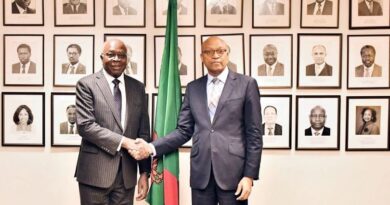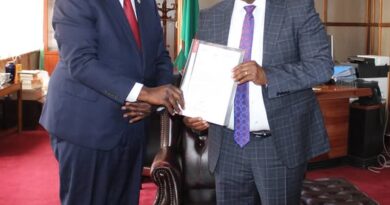Mr. Kelvin Chisanga Highlights Critical Issues in Zambia’s Economic Architecture
Prominent economic analyst Mr. Kelvin Chisanga has highlighted concerns about Zambia’s economic structure, emphasizing the urgent need for a production-oriented remodeling to address the growing trade imbalances and reliance on imports.
Mr. Chisanga underscored the gravity of Zambia’s substantial import bill, revealing that the export balance is far from being equivalent. This imbalance, according to him, is contributing to an overheated exchange market, restricting the country’s ability to support forex supply effectively.
One of the key issues identified is the dominance of South Africa in Zambia’s import processes. He argued that Zambia has become overly dependent on its southern neighbor, allowing South Africa to exploit the market extensively.
Mr. Chisanga pointed out that South Africa strategically manages two types of production lines, catering to both domestic consumption and international exports, which has significantly contributed to its economic success.
Highlighting the stark contrast, he lamented that Zambia lacks a diversified production model, making it vulnerable to external economic shocks.
He stressed the importance of upscaling local productivity to create a more robust export base, thereby mitigating the inflationary impacts caused by the high demand for foreign exchange.
Economist Chisanga acknowledged the challenging factors associated with the Zambia-South Africa import model, including mass production issues and the impact of South Africa’s manufacturing conditions, such as electricity crises.
He warned that these challenges could result in Zambia experiencing a fraction of South Africa’s imported inflation components.
In conclusion, Mr. Chisanga urged Zambia to restructure and remodel its local economic architecture. He emphasized the need for a more balanced and diversified approach, which would not only promote local industries but also insulate the country from external economic fluctuations.
The proposed changes, according to Mr. Chisanga, are crucial for fostering sustainable economic growth and overall stability in Zambia.



